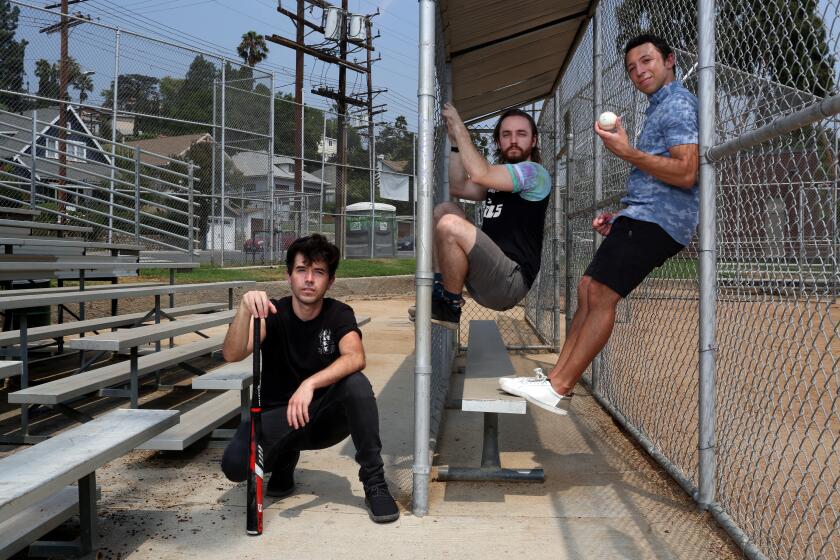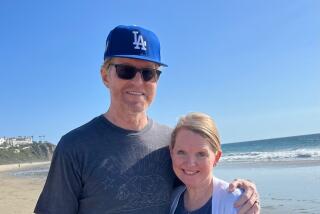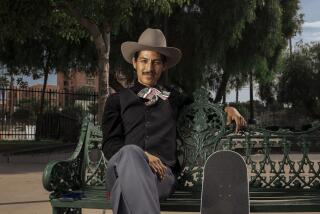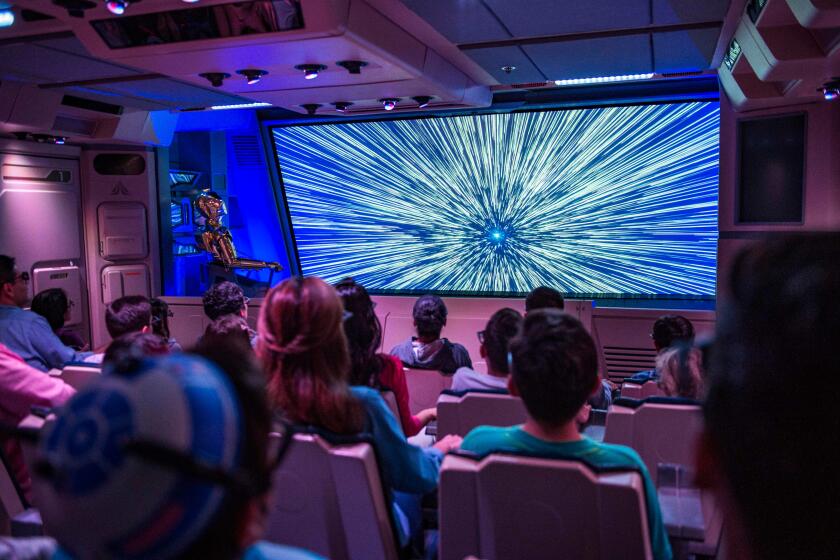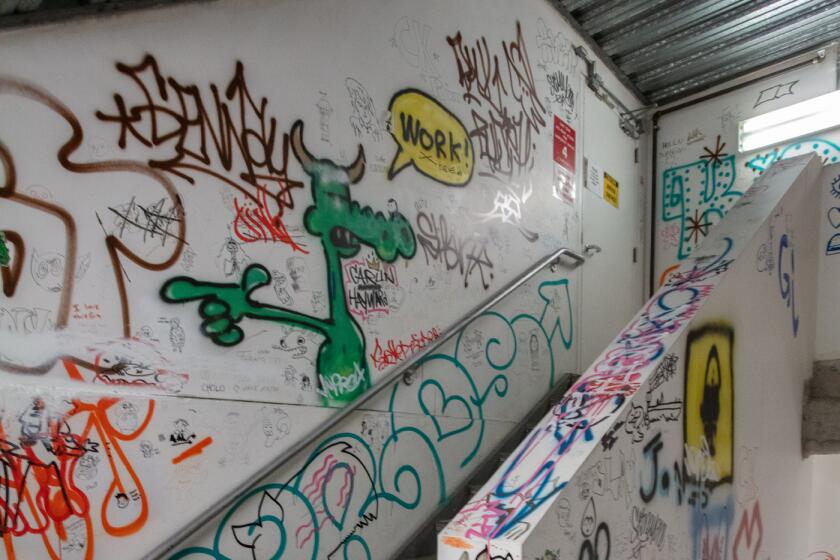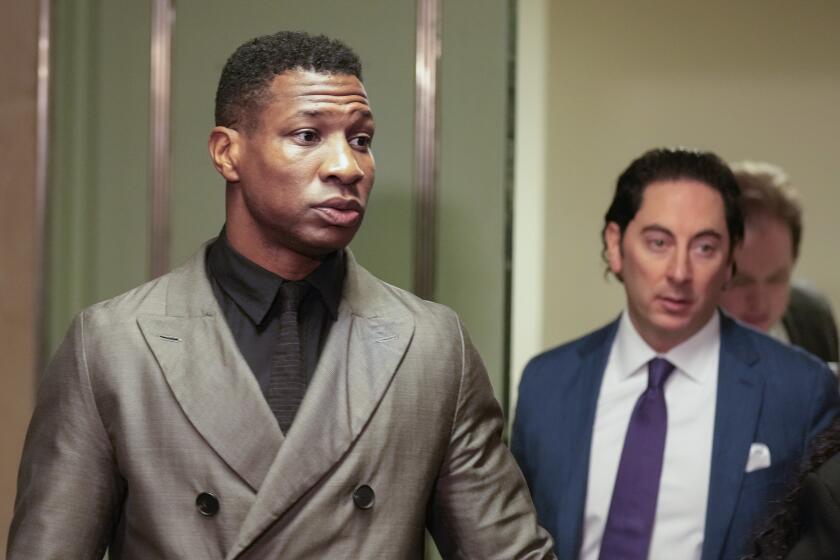The return of Tony Hawk, pro skater, video game icon
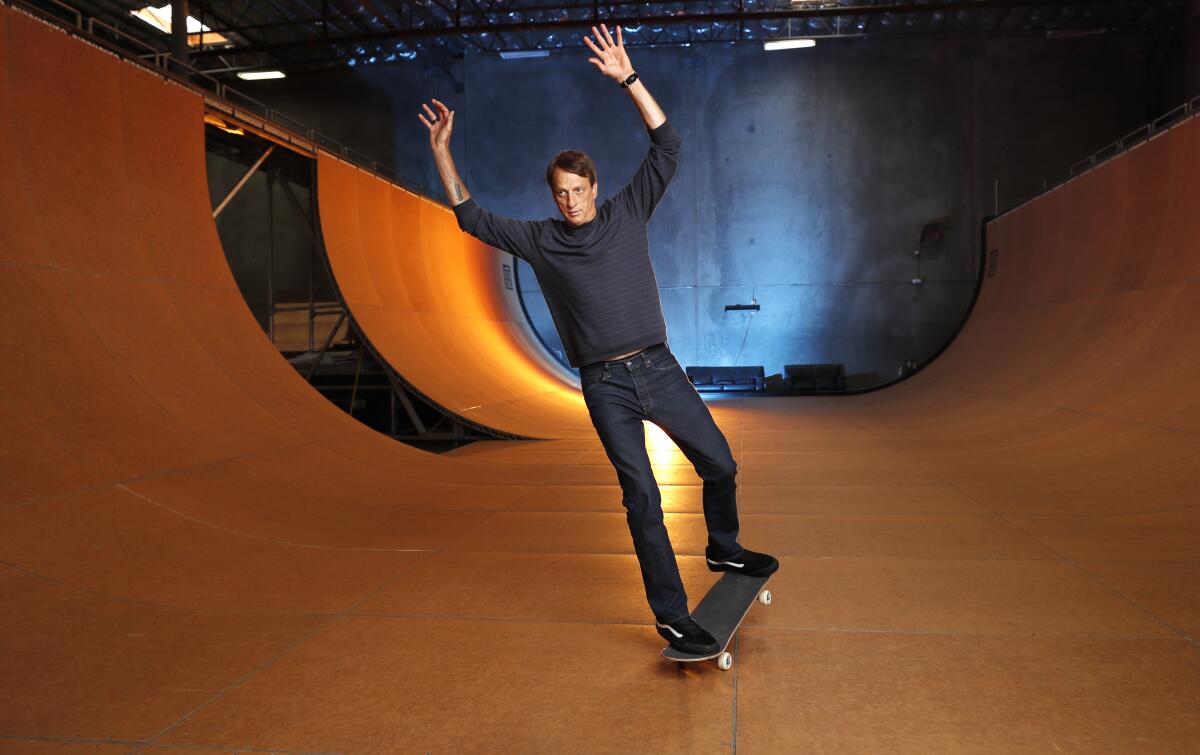
In early June, Tony Hawk was championed as a hero on social media for speaking out at a Los Angeles Police Commission meeting. One problem: It wasn’t him.
The confusion came when an angry “Tony Hawk” called into a public Zoom meeting to voice, as many others did, frustration at the L.A. Police Department’s handling of protests in the wake of George Floyd’s killing by Minneapolis police officers. The caller urged, bluntly, for the resignation of LAPD Chief Michel Moore.
Within moments, the real Tony Hawk, pro skater and video game brand icon, saw his social media notifications erupt. Hawk, speaking on the phone this week from his north San Diego County office in Vista, says that at first he was confused. Why was everyone tagging and celebrating him?
But Hawk wasn’t upset by the case of mistaken identity once he heard the recording of the Zoom meeting. “The sentiment wasn’t bad.”
Hence, Hawk didn’t go on a major offensive to “chase it down” and demand the removal of any posts, though he did make it clear that it was not him on the call. He dispelled the false claim by asking followers to make a donation to racial justice advocacy group Color of Change.
“It was definitely not the language I would have used or maybe the exact vibe of how I would have said it,” Hawk says. “It was obviously not my voice.”
Hawk going unrecognized, if it ever was a concern, should be even less a worry for the rest of 2020. Friday will see the re-release of the first two editions of his groundbreaking “Tony Hawk‘s Pro Skater” games, which are receiving the remastered treatment. It’s a franchise that has generated more than $1.4 billion in sales and defined a video game genre upon its debut in 1999, the same year Hawk became the first skateboarder to land a 900, a trick that requires 2 ½ mid-air revolutions.
Among the game’s updates: current-generation graphics, cultural tweaks, appearances from today’s younger skating talents and age-appropriate scans for Hawk and the game’s original lineup of skaters. They may be older, but Hawk wants to dispel any notion that anyone is completely worse for wear.
“They still have their same moves,” he says.
The same could be said for Hawk, now 52. Just this week he showed he can still turn heads with his skating when he matched the Got Milk challenge set by five-time Olympic gold medalist Katie Ledecky (who swam the length of a pool with a glass of milk on her head) and performed a McTwist on a ramp without spillage from the glass of milk he was holding.
“That was a nice surprise that it actually worked,” Hawk says, noting he needed only one take to keep the glass steady. “I thought it was going to be a funny disaster.”
Of course, in a blockbuster week for video game releases — including “Marvel’s Avengers” and “NBA 2K21” — and as video games continue to help fill the cultural hole left by our largely still-closed movie theaters, “Tony Hawk’s Pro Skater 1 + 2,” developed by Vicarious Visions and published by Activision, could be seen as the genre’s nostalgic offering. Especially when one notices that the new game features many of the now-vintage pop-punk songs from the original.
But the fresh packaging and updates serve to re-introduce an important slice of video game history. In a medium where new technology can render digital content obsolete, it’s worth pausing to give “Tony Hawk’s Pro Skater 1 + 2” its due, a key 3D-rendered game that crossed genres and popularized a then still relatively underground sport.
‘Tell Me Why’ breaks ground not only for its transgender lead, but for not indulging in the cliches of transphobia.
It also shows that Hawk still has a bit of the rebellious attitude present in the punk rock songs that served as the soundtrack to the sport that blossomed in Southern California during the alt-rock ‘90s. Skateboarding, its practitioners and proponents like to say, is a sport where you can come as you are; no need to tidy up anyone’s image for a video game.
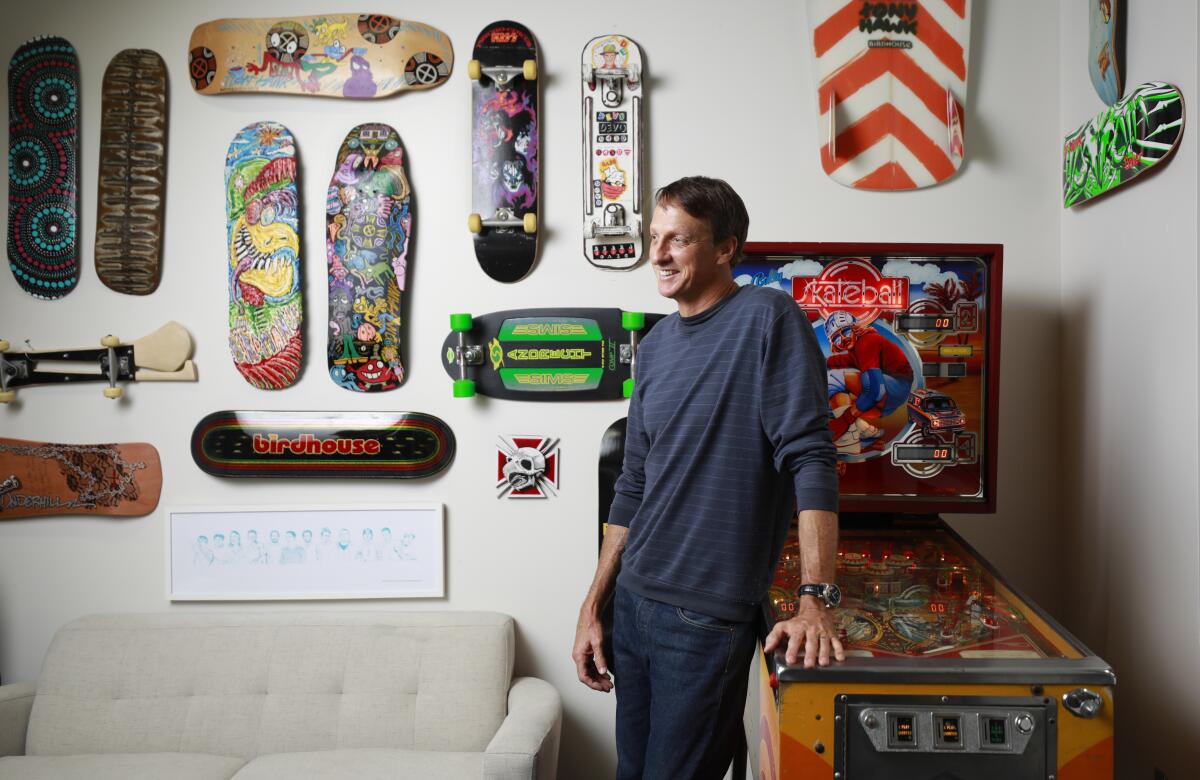
“To me, the coolest part about getting to do this again is that most of the skaters that were featured as characters in the original series are still skating and are still relevant,” Hawk says. “So we put them in at their current age. That’s the coolest part of it. Andrew Reynolds, Chad Muska, Elissa Steamer, Eric Koston, Kareem Campbell — they’re all in their current state.”
These are the skaters, after all, who with Hawk brought skateboarding into mainstream acceptance — and if the COVID-19 pandemic hadn’t shut down the Tokyo Summer Games, the sport would have made its Olympics debut this year.
But while there is no denying that skateboarding is a sport, Ludvig Gur, who directed this summer’s documentary “Pretending I’m a Superman: The Tony Hawk Video Game Story,” says of “Tony Hawk’s Pro Skater,” “I actually think it’s a misconception to call it a sports game.”
At its best — as exemplified by the first two original editions — “Pro Skater” felt at times like a platformer (think “Super Mario Bros.”), a racer or even a competitive brawler. The player was constantly moving, careening through warehouses, empty streets or deserted schoolyards, jumping on picnic tables or off the side of walls to gather digital collectibles or complete challenges. For those new to skateboarding, this type of gameplay was immediately recognizable, only it replaced running and jumping with the forward momentum of a skateboard. A free skate mode also managed to show video game players and developers the joys of relatively open-to-explore levels.
Initially, says Ralph D’Amato, who worked on the original games at the now-defunct Woodland Hills studio Neversoft, the studio zeroed in on the speed and daredevil aspects of skateboarding. But rather than simply attempt to replicate the sport, they looked to other game genres, and asked players to complete moves via a series of button combinations that wasn’t all that different from the fighting games of the era.
“Once we started fleshing out the gameplay it became apparent that an A-to-B-style racing game wasn’t what people wanted as much as an open environment,” he says. “The control system took a while to nail down, but in my opinion you can use it as a fighting game if you wanted to; the combo system wasn’t a sports combo system. And the initial goal-set that we had was to set it up like a platformer. It appealed to a wide audience of people and not just skateboarders.”
Players could rush through cityscapes, busting and jumping through detours and left turns, or spend time mastering skateboarding moves, captured in exaggerated but relatively realistic form. “It uses so many elements from other games,” says Gur, “even ‘Mortal Kombat,’ as you do special moves like in fighting games.”
Gur’s film tracks the making of the Hawk games and their rise in popularity as well as their eventual decline, when the franchise’s sequels began to outpace innovations. While some spinoffs such as “Underground” were met positively, the brand’s reputation took a dip after the 2009 release of “Tony Hawk: Ride,” a clunky experiment with a skateboard-like peripheral.
“The one consistent comment that I would get on social media over the last five or 10 years was, ‘Why can’t we get a remaster of the original games? Please, please remaster them.’ As if I can code it myself,” Hawk says, laughing. “The discussions didn’t get serious until not too long ago when we were starting to come up on the 20th anniversary of the game. Activision had some success with some other remasters, and we started talking about it.
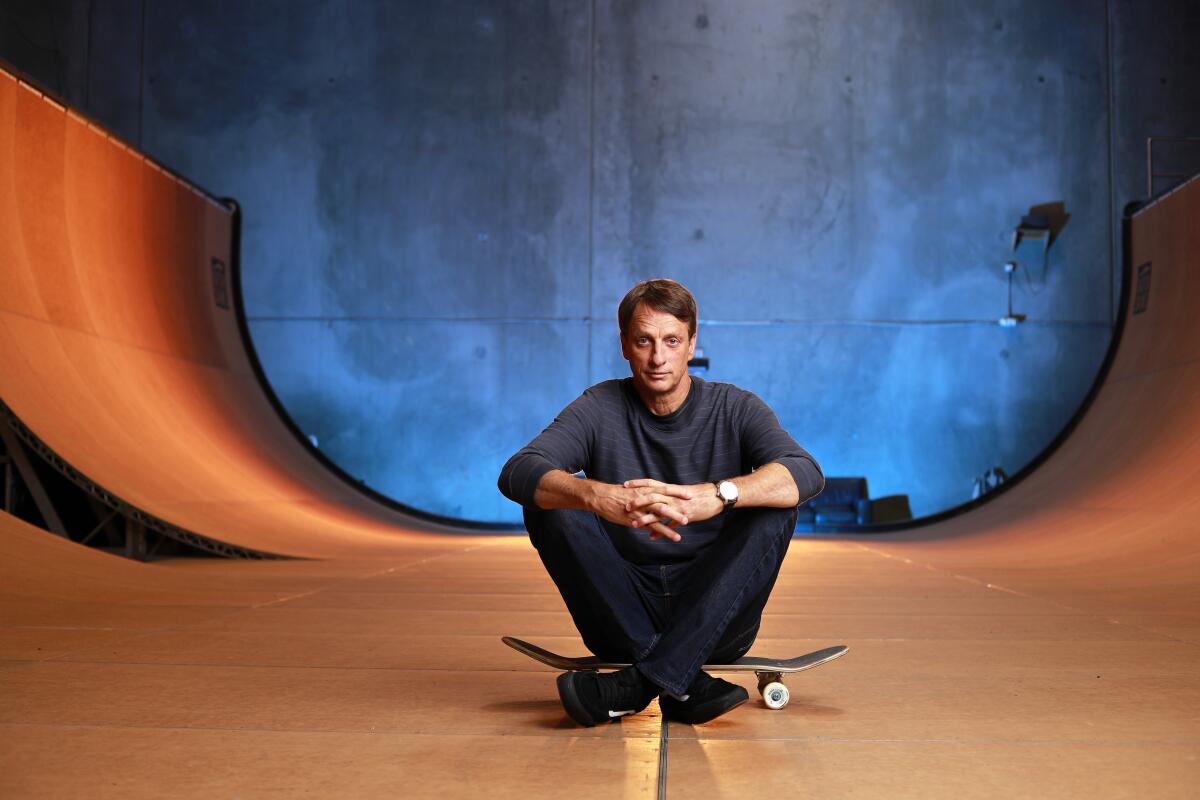
“I just told them,” Hawk says, “‘You know, there’s so much love and nostalgia for the series, and we’ve tried to expand upon it in recent years, but why don’t we go back to the original?’”
From the very beginning, Hawk strove to do more than just lend his name to the product. Both he and D’Amato, reminisced about Hawk attempting to teach Neversoft employees how to skate. Footage shown in Gur’s film, for which D’Amato served as a producer (and which is available to rent on most streaming services), indicates it didn’t go well.
Yet Hawk, says D’Amato, was always available to the studio.
“There were times where I could email Tony and ask him for a specific trick reference, and he would email me back a video or sometimes mail me a DVD,” says D’Amato. “He went out with his filmer, and actually took reference footage just for us and he shot at multiple angles. Each week toward the end of the project, we would send out builds of the game so he could play it and so he could give us an idea of what he thought about different tricks that we added. It was a load of great feedback.”
And in a piece of now-familiar video game lore, just before the original game’s release Activision offered Hawk $500,000 as a buy-out on future royalties, which the athlete fortuitously declined. He wanted a say in the game’s evolution. And while Hawk was betting on the game’s success, it helped that his own popularity would skyrocket with the completion of the elusive 900 trick at the 1999 X Games.
Baseball right now is weird. So check out “Blaseball,” a word-of-mouth baseball-inspired video game hit.
As he says in the film, Hawk rejected a courtship from Take-Two Interactive, believing its games were “too difficult to master.” Back in his office, Hawk says that he wanted a game with depth, but one that respected the look and tone of skate culture and still wasn’t as challenging as actual skating. Asked to reflect on why the original worked, Hawk notes that’s an easy answer: The game is approachable.
“The idea that you could just pick up and play it was probably one of those most important aspects to me,” Hawk says. “You didn’t have to know about skating to play it. There are games now that are much more into the real mechanics of the skating and the learning curve of skating. But at the time and place that we started, that wouldn’t have gone over well. Not enough people were actually skating to want to play a game in that way. For sure, there are unreal elements. You can grind power lines and jump rooftops, but that made it fun.”
To make it fun — and relevant — for 2020 video game players, there were cultural updates needed, beyond just the addition of younger stars such as Lizzie Armanto and Nyjah Huston. Hawk recently took to Instagram to note that a trick inspired by deaf skater Chris Weddle would be renamed the “Weddle grab,” dispensing, at long last, with its offensive “mute air” designation.
“I had become friends with a deaf skater in recent years, and he’s such an advocate for the deaf community,” Hawk says. “He reached out to me and said, ‘If you’re going to do anything going forward, you should consider renaming the ‘mute air’ because that’s an insult to deaf people.’ I had never given it that much thought because when we were kids that’s the name we were given and we went along with it. I knew the backstory a little, but I didn’t know what an insult it was, and we had to chance to fix this, at least in how it’s labeled in our games.”
If the past is any indication, how the “Pro Skater” games go, so goes skate culture. “That has been the standard that people go by,” Hawk says, theorizing that the game has long educated the masses on the sport.
“After the second game was released and going into the third one, I felt like there was a better appreciation for skating,” Hawk says. “Obviously the games were successful, but there was an audience that was willing to watch skateboarding that didn’t participate in it. That was the tipping point in popularity.
“Before that,” says Hawk, “the only people who really liked skating were skaters themselves.”
'Tony Hawk’s Pro Skater 1 + 2'
Video games and immersive entertainment
More video game and immersive entertainment stories from critic Todd Martens.
More to Read
The biggest entertainment stories
Get our big stories about Hollywood, film, television, music, arts, culture and more right in your inbox as soon as they publish.
You may occasionally receive promotional content from the Los Angeles Times.
